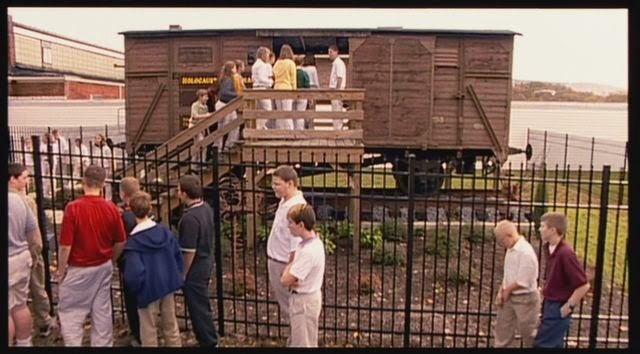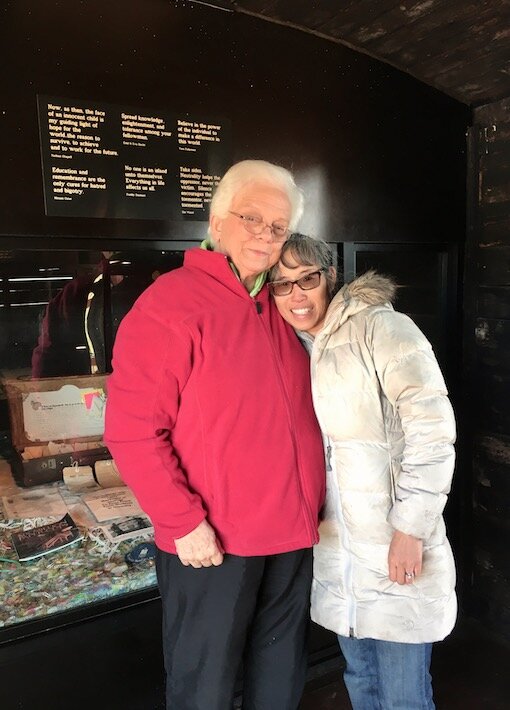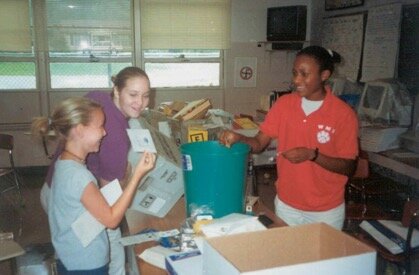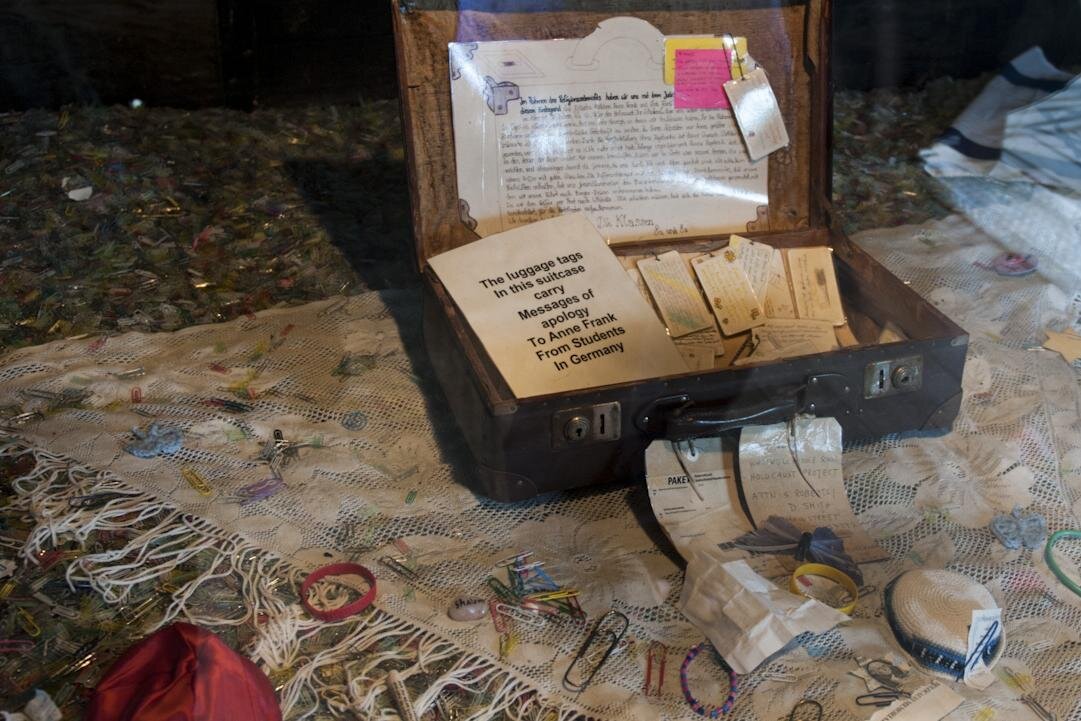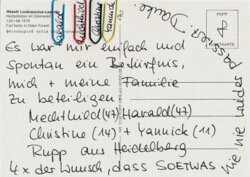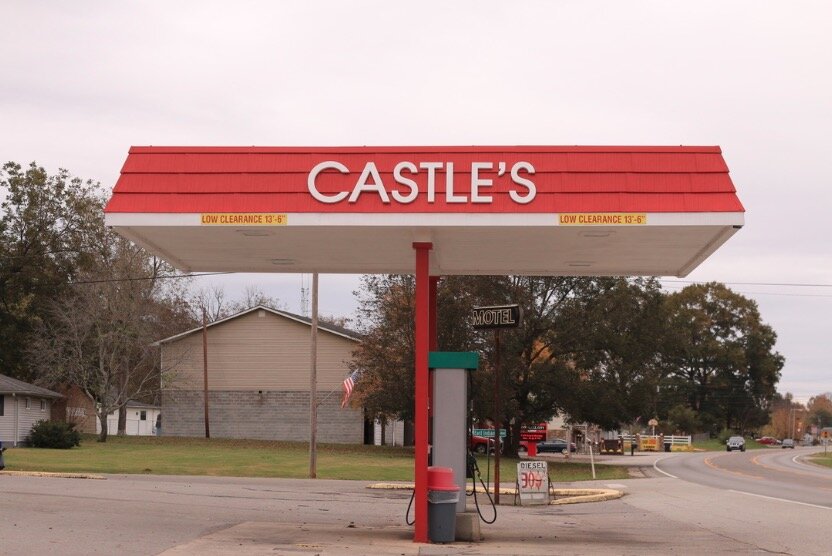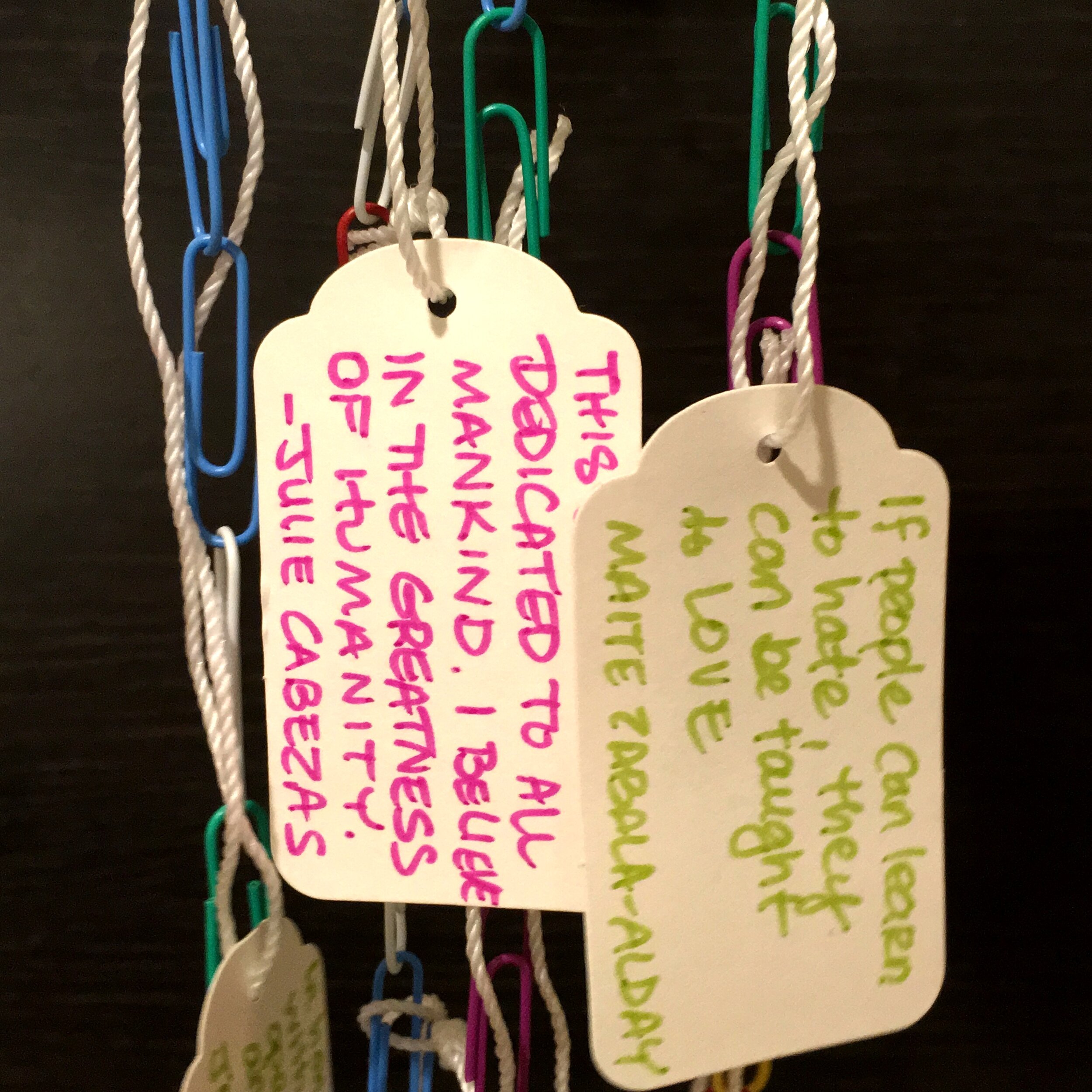"One Small Thing" Update From the Project’s Creator
This a big night in the tiny town of Whitwell, Tennessee (population: 1700 people). Visitors and student alumni have flown in from around the country to reunite and celebrate the anniversary of the afterschool project that birthed a global phenomenon 20 years ago.
A pair of 8th graders, both named Grace, are dressed in matching polo shirts, ready to take groups of visitors on tours of the authentic German rail car – once a symbol of death, now a memorial of peace – that displays 11 million paper clips sent in by people from around the world.
Linda Hooper, Dave Smith and Sandy Roberts, the teachers behind the Holocaust project, hobnob with guests in the middle school cafeteria, getting bear hugs from former students who now stand as tall they do. Kosher food has been brought in from Chattanooga for Jewish guests from Philadelphia.
It’s hard to imagine a less likely place for a Holocaust memorial than Whitwell. It’s equally hard to imagine that something like the paper clips project would have taken off like it did.
One Small Thing
Learn more about One Small Thing podcast, produced by the Level Ground Studio here.
No Jewish people have ever lived in Whitwell and before this project, most residents had never met a Jewish person. The town's too small and remote to have a Walmart, McDonalds, or supermarket. Try and look up Whitwell on your smartphone Weather app, and you get no results. Most people driving along Interstate 28 don’t even realize when they’ve passed through Whitwell.
Like other Southern towns, Whitwell carries a heavy history. Blacks and whites were once segregated under Jim Crow. The KKK was founded 100 miles away and had a presence in Whitwell through the 1960s. At the last census, the town was 98% white with a median education level of 6.6 years. When Whitwell’s coal mining jobs disappeared, the economy died with them.
Whitwell is the kind of town that most of the country would deem as insular, close minded, and out of touch – which makes their story that much more remarkable.
“Try and look up Whitwell on your smartphone Weather app, and you get no results.”
When I stumbled upon the story of how far out of their way this community had gone to understand a group of strangers so different from them, I had to know more. As a woman of color who grew up in Philadelphia, I’ve been fascinated and frightened of the South, getting most of my perceptions from Hollywood and history books. What could I learn about prejudice from white folks living in a small town whose life experience is worlds apart, yet whose hearts seem so similar to my own?
Stephanie Zhong holding the invitation to the 20th anniversary celebration of Whitwell’s paper clips project.
You never know what invitation awaits you unless you make the call.
My first phone interview with Linda Hooper, the former Principal of Whitwell Middle School, felt like a chat over tea and biscuits with a long lost grandma. Our 30-min interview turned into a 2 hour gabfest and ended with Linda inviting me to visit and attend the 20th anniversary celebration.
With the help of an initial 45 donors, we raised enough money to fly to Whitwell and spend a week interviewing people connected to the project. As the only members of the media invited to attend, we captured more than 15 hours of interviews and never-before-heard stories of lives forever changed.
You’ll be amazed and moved by the powerful stories of transformation, including my own out-of-body experience standing inside a rail car that once transported people to their deaths, now protecting their souls.
Support the completion of this podcast that will restore your hope in humanity.
Help bring to life a unique podcast series that covers the braver side of human behavior and the challenges and triumphs of building connections in unlikely places.
